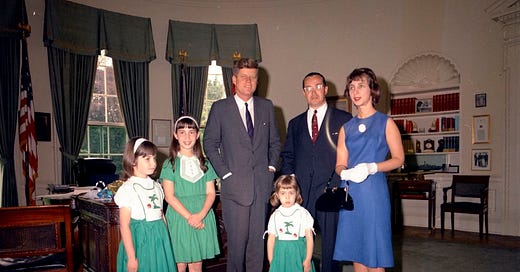The great Newton Minow, the first chair of the Federal Communications Commission, under Kennedy, died earlier this month at the age of 97. Yes, Minow was best known for once describing TV as a vast wasteland, but his lasting contributions were as a humanist philosopher of media who demonstrably improved the way democratic ideals were spread. If the postmodernism of Marshall McLuhan could tilt into nihilism, the moral commitments of Minow were clear and binding: to democracy, to ideas, and to what he called "the public interest."
Minow was not just the first to create guardrails for the broadcast networks, ensuring public ownership of them; he was the driving force behind legislation passed to launch the first telecommunications satellite. “He told Kennedy it was more important than putting a man on the moon,” Nell Minow, his daughter, recently said. “The communications satellite will put ideas into space, and ideas last longer.”
Keep reading with a 7-day free trial
Subscribe to Magic + Loss to keep reading this post and get 7 days of free access to the full post archives.





